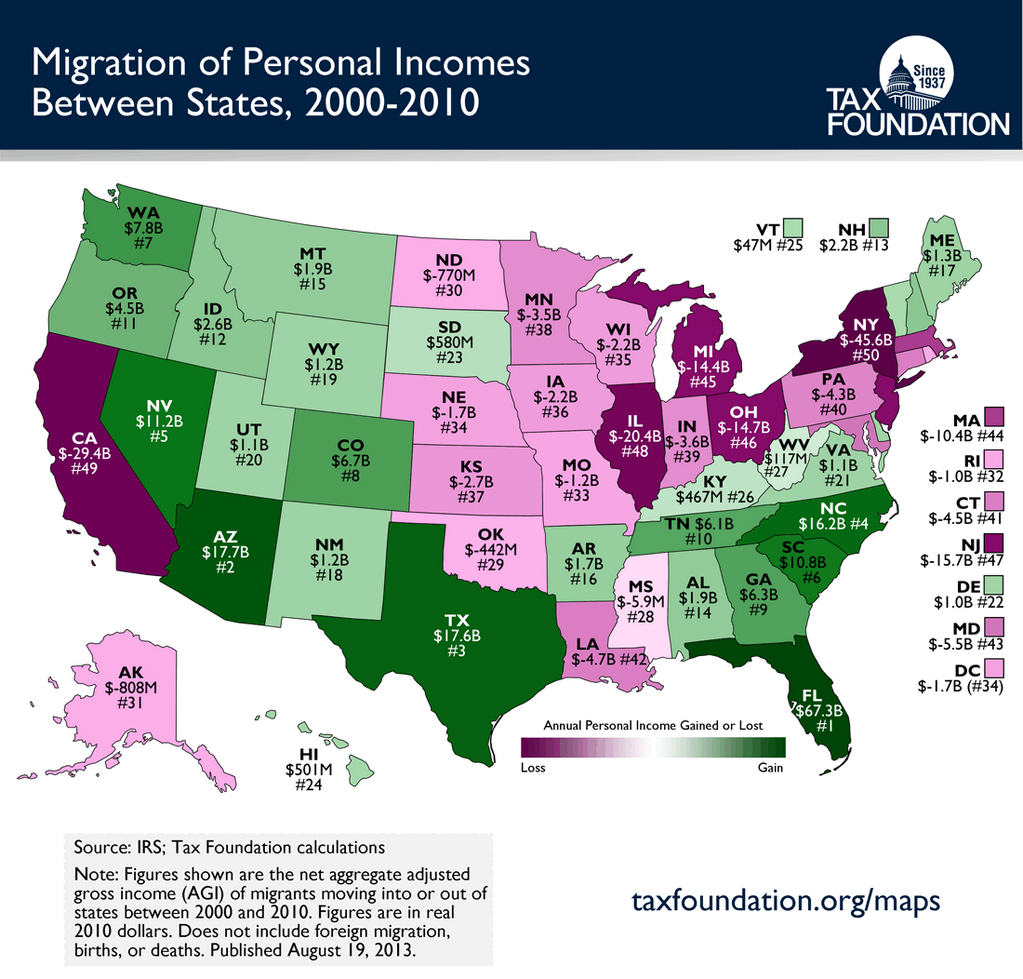
ILLINOIS Budget + Tax Policy
August 19, 2013
When people dont like the direction in which their state is headed, they often vote with their feet. Thats precisely what Illinoisans did during the last decade, and they took their income with them.
Illinois netted a loss of more $20 billion to other states through the out-migration of its residents from 2000-2010, according to the Tax Foundations most recent State Migration Calculator. Only California ($29.4 billion) and New York ($45.6 billion) lost more income.
The Tax Foundation reports that when a person moves to a new state, their income is added to the total of all other incomes in that state. This positively affects the total taxable income in his or her new state, and negatively affects the income in the state he or she left.
The Tax Foundations national map shows the winners and losers of interstate migration.
The nine states with no personal income tax gained $113.25 billion in adjusted gross income between 2000 and 2010; the nine states with the highest personal income tax rates lost $90.05 billion over the same period.
Florida was the biggest winner, adding $67.3 billion in income. Arizona, Texas, North Carolina and Nevada rounded out the top five.
New Jersey and Ohio joined New York, California and Illinois as the largest losers of income.
The Tax Foundations findings come at a time when Illinois cant afford to lose more people and see its tax revenue base diminished even further. The state has nearly $100 billion in unfunded pension liabilities and more than $6 billion in unpaid bills.
Unfortunately, Illinois outmigration and income losses will only get worse once newer migration data is captured. Illinois passed a record tax hike in 2011 that raised the personal income tax by 67% and corporate income taxes by 47%.
And now Democrats are proposing a new progressive tax increase that calls for raising billions more in tax revenues. That will only chase away even more of Illinois most productive residents.
Rather than increase tax rates, Springfield legislators would do better to emulate what the states with the most in-migration are doing lower taxes, less regulation and less government spending.
